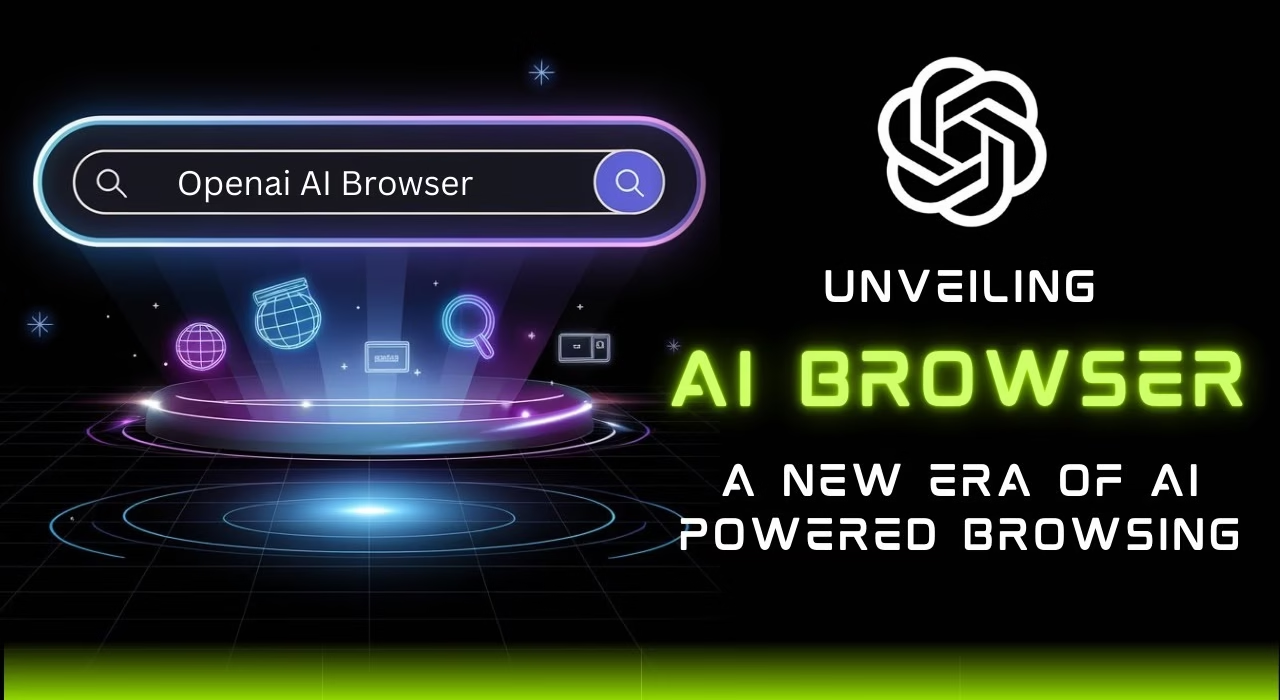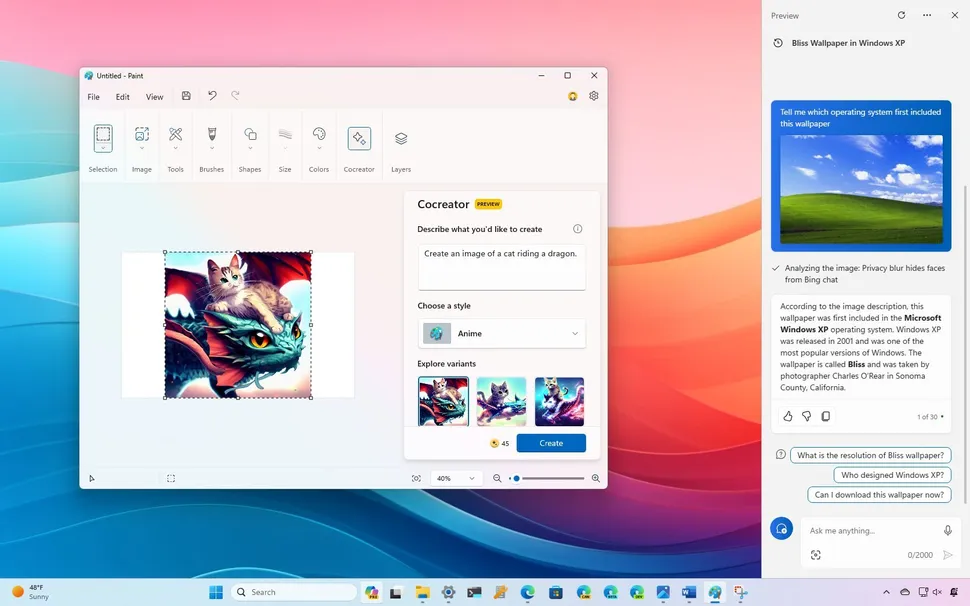The Anticipated OpenAI AI Browser Launch: Reshaping the Future of Web Browsers AI
Estimated reading time: 8 minutes
Key Takeaways
-
- The potential OpenAI AI browser launch is generating significant buzz, positioning OpenAI as a new, formidable competitor in the long-dominated browser market.
-
- This innovative browser is expected to deeply integrate generative AI technologies directly into its core, offering capabilities far beyond standard internet access.
-
- Anticipated ai web browsing innovations include intelligent content summarization, AI-powered search enhancements, automated workflows, advanced privacy features, and deeply personalized browsing experiences.
-
- The openai ai browser launch represents a direct challenge to Google Chrome, aiming to differentiate itself through fundamental AI integration and a novel user experience.
-
- This development could fundamentally redefine productivity and information consumption, setting a new standard for the future of web browsers AI technology and user expectations.
- Key challenges for OpenAI will include overcoming user inertia, building trust in data privacy, and managing the potential learning curve for its AI-driven interface.
Table of contents
The Dawn of a New Era? Exploring the OpenAI AI Browser Launch
The tech world is abuzz with significant anticipation surrounding the potential openai ai browser launch. Whispers and reports suggest that OpenAI, the leading force behind generative AI models like ChatGPT, is reportedly preparing to make a groundbreaking entry into the fiercely competitive browser market with its own AI-centric web browser. This move has generated *immense* excitement and discussion within the tech community, signaling a pivotal moment in how we interact with the internet.

For decades, the web browser space has been largely dominated by giants such as Google Chrome, Apple’s Safari, and Mozilla Firefox. OpenAI’s potential foray into this arena isn’t just another browser release; it represents a potentially disruptive force, redefining the competitive landscape. As sources like 9to5mac.com and TechCrunch highlight, this isn’t merely about faster page loading or new privacy features; it’s about fundamentally rethinking the browsing experience through the lens of artificial intelligence.
The core concept here is the deep integration of generative AI technologies into the very fabric of web browsing. This promises to usher in a major leap in how users interact with online content and services. Such a profound ai web browsing innovation could transform digital navigation, making it more intuitive, intelligent, and personalized than ever before. We might be on the cusp of an era where our browser doesn’t just display information but actively *understands* and *assists* us in consuming and interacting with it.

This blog post will delve into what an OpenAI AI browser might entail, exploring the speculative yet highly anticipated innovations it could bring. We’ll examine its potential rivalry with established players like Google Chrome, dissecting the key differentiators that could set it apart. Finally, we’ll ponder the broader implications of this development for the future of web browsers AI, and what it means for every internet user. Get ready to explore the exciting possibilities that lie ahead in digital navigation.
What is an OpenAI AI Browser? (Speculation & Core Concept)
At its heart, an OpenAI AI browser isn’t merely an alternative to Chrome or Safari; it’s envisioned as a completely new paradigm for internet interaction. When we talk about a browser powered by OpenAI’s advanced AI, we’re discussing a tool expected to offer capabilities that stretch far beyond conventional internet access and website rendering. It’s about creating an intelligent layer *over* the internet itself, designed to augment user experience in unprecedented ways.

The fundamental difference between a traditional browser and one deeply integrated with generative AI is profound. Traditional browsers excel at speed, compatibility, and security, focusing primarily on efficiently displaying web pages as they were designed. Their role is largely passive: they retrieve and render. An OpenAI browser, conversely, would likely be deeply integrated with cutting-edge large language models (LLMs) such as GPT-4 or future, even more advanced iterations. This integration, as reported by sources like 9to5mac.com and TechCrunch, would not be an optional add-on or an extension, but rather the very foundation of the browser’s functionality.
This deep integration would facilitate real-time understanding, summarization, and automation *within the browser itself*. Imagine your browser not just displaying an article, but instantaneously comprehending its core arguments, identifying key figures, and offering a concise summary before you even scroll. This makes AI a central, indispensable part of the browsing workflow, rather than a separate application or a simple search function.

What does “real-time understanding” truly mean in this context? It signifies that the browser wouldn’t just index content or identify keywords. Instead, it would *comprehend* the context, nuance, and intent of the information on the page as you view it, just as an intelligent assistant might grasp the essence of a conversation. This means it could answer questions about the content, draw connections to other information you’ve viewed, or even proactively suggest next steps, all without requiring you to leave the current page or manually initiate a new search. This level of cognitive integration is what truly sets the potential openai ai browser launch apart from anything we’ve seen before.
Key AI Web Browsing Innovations Expected
The much-anticipated OpenAI AI browser launch promises to introduce a suite of innovative features that will leverage advanced AI to transform our online interactions. These ai web browsing innovations are designed to make the internet a more intuitive, efficient, and personalized space. Here’s a closer look at what we can expect:

-
- Intelligent Content Summarization: Imagine encountering a lengthy research paper or a detailed news report and, with a single click, receiving a concise, accurate summary. This feature would go beyond simple text extraction; it would intelligently comprehend the document’s core arguments, identify key facts, and present the most pertinent information. Users could condense academic papers, complex legal documents, or extensive articles into brief, actionable takeaways, extracting specific facts or understanding the gist of a large body of text effortlessly. This saves invaluable time and allows for rapid information absorption.
-
- AI-Powered Search Enhancements: Traditional search relies heavily on keywords. An OpenAI browser, however, would likely offer a dramatically more advanced search experience. It would provide context-aware, personalized information retrieval, moving beyond mere keyword matching to understanding the user’s *intent* behind a query. The browser could provide highly relevant, synthesized answers directly within the browser interface, eliminating the need to click through multiple links. Furthermore, it could pre-filter results based on your previous interactions, browsing history, or stated preferences, making search feel less like a query and more like a conversation. This is the next frontier for revolutionary AI search technology.
-
- Automated Workflows and Task Completion: This is where the browser transitions from a passive viewer to an active assistant. Practical examples include auto-filling complex forms across multiple pages by inferring required information, scheduling appointments directly from a webpage (e.g., confirming dates and times based on your calendar and the website’s booking system), or even composing preliminary drafts of emails or messages based on the current browsing context. Such capabilities would significantly reduce manual effort and streamline tedious online tasks.

-
- Enhanced Privacy and Security Features: Leveraging AI, the browser could detect and neutralize online threats in real time. This goes beyond traditional antivirus software or basic phishing filters. AI could identify sophisticated phishing attempts by analyzing linguistic patterns and contextual cues, detect nascent malware patterns before they become widespread, or alert users to potential data misuse by scrutinizing website behavior. This would offer a proactive, adaptive shield against evolving cyber threats, transforming your browser into a vigilant guardian of your online safety. This represents a breakthrough in AI cyber defense.
-
- Personalized Browsing Experiences: The browser would become truly adaptive. It would learn from your habits and preferences – frequently visited sites, preferred content types (e.g., news, research, entertainment), reading speed, and even preferred visual layouts. Based on this continuous learning, it could offer tailored content recommendations, dynamically adjust website layouts for optimal viewing, or prioritize information streams that align with your interests. This would be a dynamic, continuously evolving interface, making your online world truly your own.
- Real-time Content Generation or Modification: Imagine on-the-fly language translations that not only convert words but also retain the context, tone, and nuance of the original text. Or, consider automatically rewriting complex technical jargon into simpler terms suitable for different reading levels. The browser could also generate content snippets based on user prompts within the browsing environment – for instance, quickly drafting a social media post summarizing a product review you just read, or creating quick notes from a video lecture. This capability signifies the unstoppable AI-generated content revolution integrated into your daily browsing.
These capabilities, collectively, would fundamentally differentiate an OpenAI browser from current mainstream offerings. They embed AI as a core, intelligent part of the browsing workflow, promising to transform the internet from a static repository of information into a dynamic, interactive, and highly personalized digital assistant. As reported by 9to5mac.com and TechCrunch, this move signals a new era of web interaction.
OpenAI vs. Google Chrome: A New Contender in the Ring?
The long-standing dominance of Google Chrome in the browser market is undeniable. For years, it has been the go-to choice for billions of users worldwide, praised for its speed, vast extension library, and seamless integration with Google’s ecosystem. But the whispered openai ai browser launch signals a monumental shift: is an openai chrome competitor truly on the horizon, one capable of challenging the reigning champion?

The answer is a resounding *yes*. Reports from sources like 9to5mac.com and TechCrunch suggest that OpenAI’s entry is a direct and ambitious challenge, not just an incremental improvement. The core battleground for OpenAI vs. Google Chrome will lie in their fundamental approaches to AI integration and user experience. Let’s break down the key differentiators:
-
- AI Integration:
-
- OpenAI AI Browser: This browser is anticipated to feature deep, core-integrated Large Language Models (LLMs) that are fundamental to its very operation. The AI won’t be an add-on; it will be the engine, processing and understanding web content natively. This is about building a browser *around* AI, rather than bolting AI *onto* a browser. As discussed in the shift towards AI-centric hardware and software, this mirrors the deeper integration patterns seen in ventures like OpenAI Google TPUs ChatGPT shift.
- Google Chrome: While Google is an AI powerhouse, Chrome primarily relies on AI via extensions (like Gemini for Chrome) or external Google services (e.g., Google Search, Google Assistant). These are often separate applications or add-ons that work *with* the browser, but are not built into its core rendering and interaction functionality in the same seamless way. Chrome’s AI is more about enhancing specific tasks or providing external assistance.
-
- AI Integration:
-
- Personalization:
-
- OpenAI AI Browser: Projected to offer an adaptive and continuously learning personalization engine. It would proactively tailor experiences based on a deep analysis of your user interaction, content consumption patterns, and even your emotional responses (if allowed and consented to). This could manifest as dynamically adjusted layouts, context-aware content suggestions, or even personalized learning paths.
- Google Chrome: Personalization in Chrome is typically more user-controlled (e.g., sync settings, theme customization, saved passwords). While Google services offer extensive personalization across its ecosystem (search results, YouTube recommendations), Chrome itself is less proactively adaptive to individual browsing patterns *within* the browser interface beyond basic cookie-based tracking.
-
- Personalization:
-
- Automation:
-
- OpenAI AI Browser: Anticipated to offer native, built-in task automation capabilities. This means the browser itself could perform complex, multi-step workflows directly, such as booking an entire travel itinerary from various websites or handling customer service interactions on your behalf.
- Google Chrome: Automation is largely limited to specific functions like autofill passwords, form submissions, or requires robust third-party extensions. These extensions may have varying levels of integration, security, and performance.
-
- Automation:
-
- Privacy & Security:
-
- OpenAI AI Browser: Could feature AI-monitored, real-time threat identification. This involves actively analyzing web content, user interactions, and even code for anomalies or malicious intent, going beyond traditional blacklists to predict and prevent emerging threats.
- Google Chrome: Employs standard scanning and features like Safe Browsing, which relies on blacklists of known malicious sites and heuristics. While effective, it’s generally less focused on dynamic, real-time AI analysis of content *intent* or complex behavioral patterns that might indicate a sophisticated attack.
-
- Privacy & Security:
- User Experience:
-
- OpenAI AI Browser: Envisioned to offer a dynamic, potentially conversational UI. Users might interact with the browser in a more natural, intuitive way, blurring the lines between a traditional browser and an intelligent assistant. Think of it as having a highly capable concierge guiding your online journey.
- Google Chrome: Adheres to the traditional web browser paradigm, focusing on efficient web page rendering and navigation through a graphical user interface with separate search bars, tabs, and extensions. Its UI is familiar and functional, but not inherently conversational or adaptively intelligent.
-
The potential strengths for an OpenAI browser are clear: unprecedented AI integration and a potentially novel user experience built from the ground up with generative AI as its core. This foundational difference is what could truly disrupt the market, as outlined by 9to5mac.com and TechCrunch. However, significant challenges loom. Breaking into a mature market where Chrome enjoys enormous user inertia and trust will be an uphill battle. Concerns about data privacy, given the AI’s deep integration and constant learning from user data, will also need careful addressing. Furthermore, users may face a substantial learning curve adapting to a radically new interface and interaction paradigm, as noted by sources like 99to5mac.com.

The Future of Web Browsers with AI Integration
The potential openai ai browser launch is more than just a new product; it’s a harbinger of a significant shift in the future of web browsers AI. This AI-first approach has profound implications for how we interact with the internet, redefining core aspects of our digital lives:

-
- Productivity Redefined: By automating mundane tasks, streamlining information consumption, and proactively assisting users, AI-integrated browsers could dramatically boost productivity. Imagine the time saved by having an AI instantly summarize lengthy reports, auto-fill complex forms, or even draft emails based on your browsing context. Users could achieve more in less time, freeing up cognitive load for more complex, creative, or strategic tasks. This transforms the browser into an active partner in your daily workflow.
-
- Transforming Information Consumption: The internet as we know it is a vast ocean of information, often overwhelming. AI-first browsers shift the paradigm from simply *retrieving* information to intelligently *processing and presenting* it. This means moving beyond a list of search results to synthesized answers, AI-powered insights derived from multiple sources, or even personalized learning pathways suggested by the browser. It allows users to gain knowledge and understanding more efficiently and deeply, cutting through the noise and focusing on relevant, contextualized information.
- More Dynamic and Personalized Online Interaction: The traditional web browser is largely a static window to the internet. With deep AI integration, interactions could become far more dynamic and personalized. The browser could adapt its interface, content presentation, and even its “personality” based on your preferences and real-time needs. This could lead to entirely new forms of content creation (e.g., AI-assisted drafting, interactive content modification) and communication, where the browser acts as an intelligent mediator or facilitator.
So, how will an openai ai browser launch shape the future of web browsers AI technology and user expectations? It could set a new standard for intelligent, adaptive online experiences, pushing other browser developers to accelerate their own AI integration efforts. This competition would ultimately benefit users, fostering an ecosystem of increasingly smart and helpful browsing tools.
The ripple effects extend to web development and content creation:
-
- Impact on Web Development: Web developers might need to fundamentally re-evaluate how sites are built. With AI-driven clients actively understanding and processing content, there might be a greater emphasis on structured data, semantic markup, and AI-friendly content formats. Developers may need to consider how their sites communicate with browser-based AI APIs, potentially leading to new best practices for AI compatibility and optimization. This could foster a richer, more interactive web, designed not just for human eyes but also for intelligent AI interpretation.
- Impact on Content Creation: Content creators could find powerful new allies in AI tools integrated directly into their browsing environment. Imagine the AI assisting with research by synthesizing information from dozens of sources, helping draft initial content by generating outlines or opening paragraphs, or optimizing existing content for different audiences or platforms. Conversely, creators will also need to consider how their content is interpreted by AI browsers, ensuring clarity, accuracy, and ethical considerations are paramount, as AI models “read” and understand content differently than humans.
Ultimately, the advent of AI-first browsers signals a transition from passive information consumption to active, intelligent interaction. It promises a web that is not only vast but also deeply personalized and powerfully assistive.

Conclusion: Anticipating the Next Leap in Digital Navigation
The immense potential and palpable excitement surrounding the rumored OpenAI AI browser launch cannot be overstated. We stand at the precipice of a transformative era in digital navigation, where the very tools we use to access the internet are poised for a revolutionary upgrade. By embedding advanced generative AI at its absolute core, OpenAI has the potential to set an entirely new standard for productivity, personalization, and interactive intelligence in the digital realm, as keenly observed by 9to5mac.com and TechCrunch.
This isn’t merely about incremental improvements to existing browser functionalities. It’s about a fundamental reimagining of what a browser can be – evolving from a passive portal into a proactive, intelligent digital companion. The transformative potential of AI in shaping the future of web browsers AI is clear, promising to move us beyond simple navigation to an experience that understands our intent, anticipates our needs, and significantly augments our capabilities online.
While challenges such as market adoption, user trust, and privacy concerns will undoubtedly need to be addressed, the promise of a truly intelligent browsing experience is too compelling to ignore. This development could indeed usher in a new era for how society engages with online content and services, making our digital lives richer, more efficient, and undeniably smarter.
Frequently Asked Questions
The core distinction lies in deep AI integration. Traditional browsers primarily focus on rendering web pages quickly and securely. An OpenAI browser, however, would natively integrate large language models (LLMs) to actively understand, summarize, and automate tasks *within* the browsing experience. This makes AI a fundamental, inseparable part of navigation and interaction, rather than merely an external add-on or search tool.
While the openai ai browser launch certainly positions it as a significant openai chrome competitor, a complete replacement of Chrome will be a considerable challenge. Chrome benefits from immense user inertia, established trust, and a vast ecosystem of integrated services. OpenAI’s browser aims to differentiate through superior AI-driven features and a novel user experience, but market dominance takes time and significant user adoption to shift an incumbent of Chrome’s stature.
An AI-powered browser promises significant benefits designed to enhance productivity and information consumption. These include enhanced productivity through automated workflows (e.g., auto-filling forms, scheduling), intelligent content summarization for faster information absorption, more personalized and context-aware search results, and proactive, AI-driven security features that can detect and neutralize threats in real time. It aims to transform passive browsing into a more active, intelligent, and assistive online interaction.
Key challenges for an OpenAI AI browser include navigating user concerns around data privacy and the ethical implications of deep AI integration. Since the AI will learn constantly from browsing habits, transparent data handling policies will be crucial. There could also be a significant learning curve for users adapting to entirely new AI-driven interfaces and workflows. Additionally, breaking into a highly mature and competitive browser market dominated by tech giants like Google and Apple will require overcoming strong user loyalty and established ecosystems.






